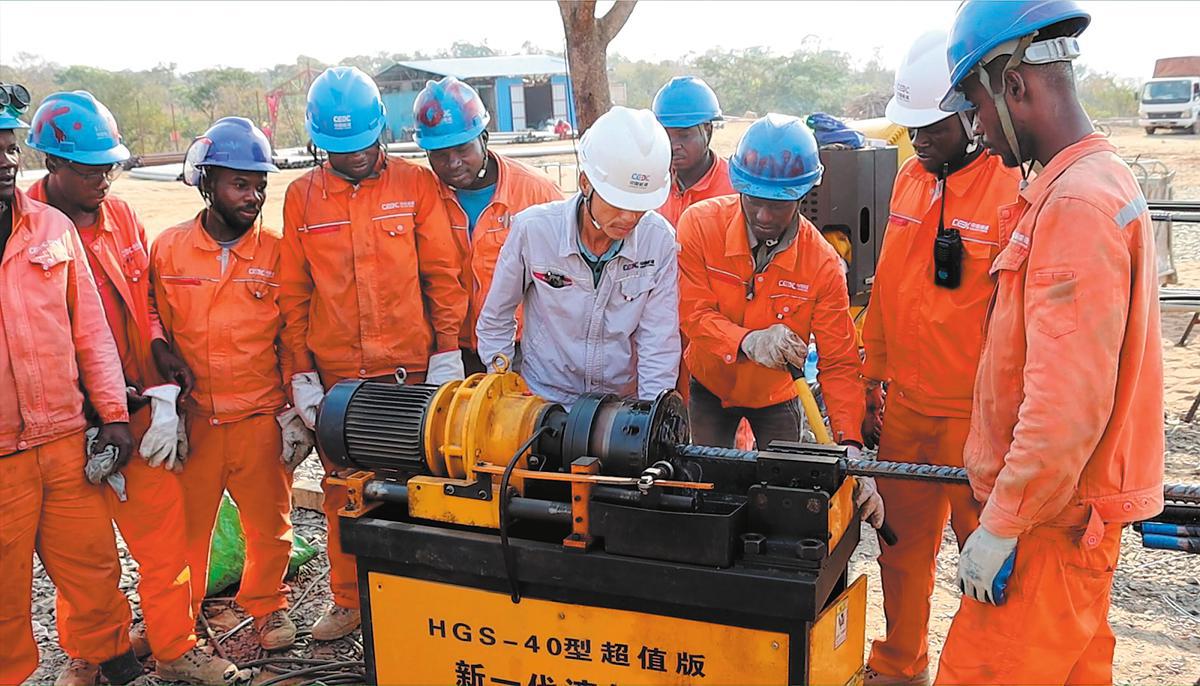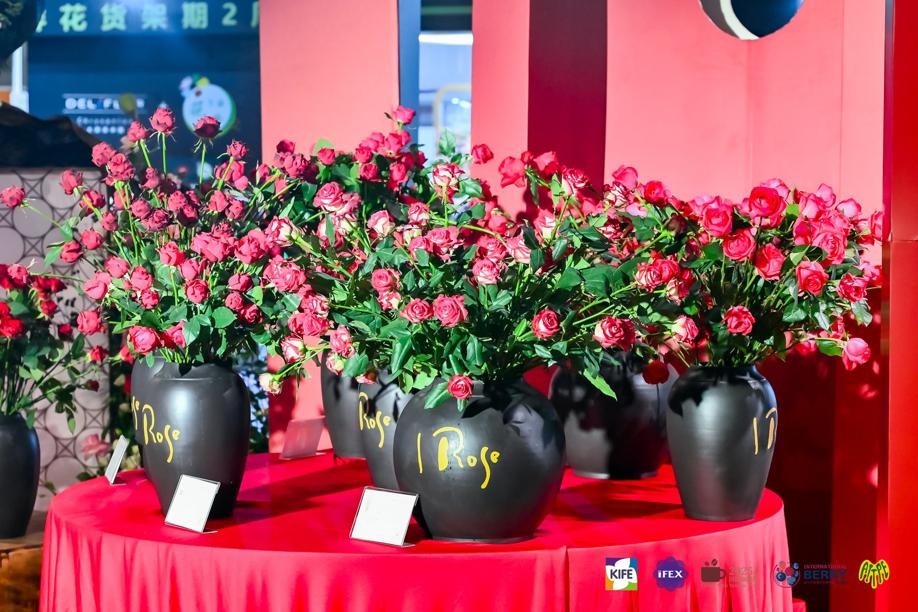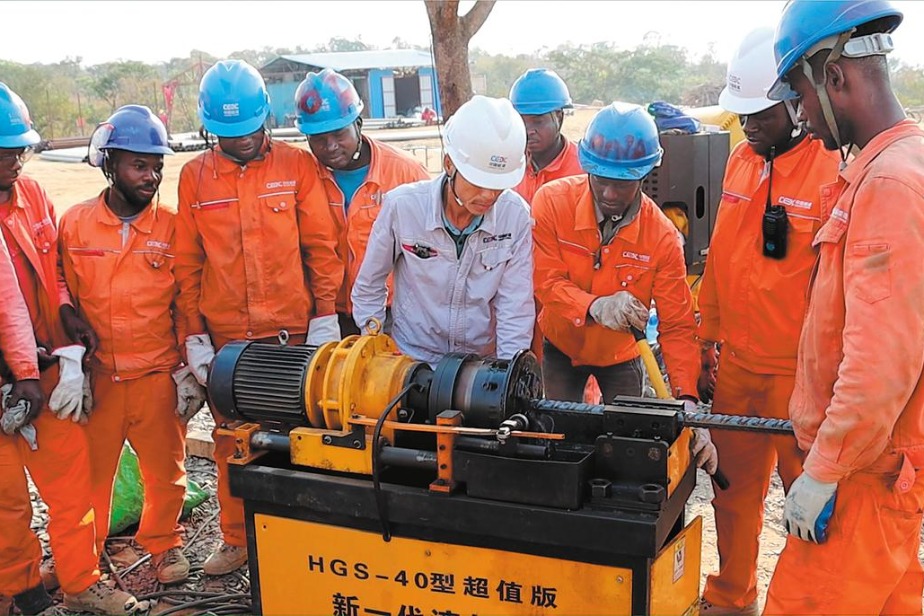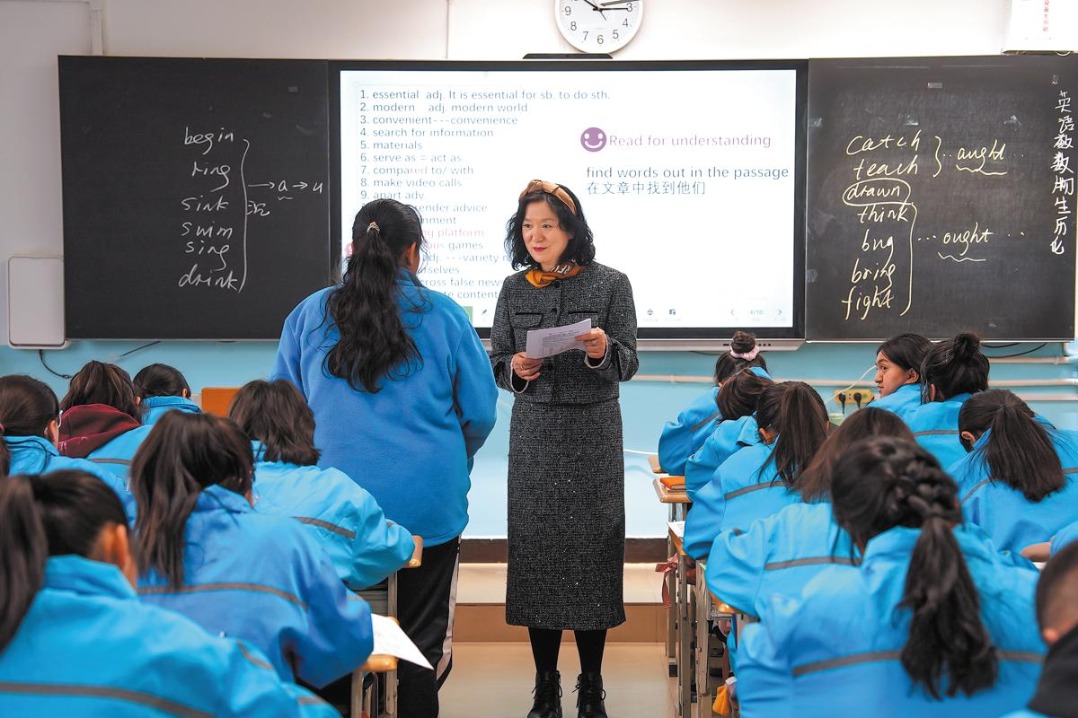Engineer empowers locals at Angolan hydropower project
Language and guidance help workers master vital skills


Chen Jianfeng, a 53-year-old Chinese engineer, has spent the past nine years at the Caculo-Cabaca Hydropower Project in Angola.
Even during his home leave this summer in Yichang, Hubei province, the engineer from China Gezhouba Group Corporation Three Gorges Construction Co was still concerned about the construction of the hydropower project in Africa.
In 2016, Chen started working at the Angolan project, where he has trained over 300 skilled Angolan workers, including heavy machinery operators, mechanics, and drilling and blasting technicians. "Master Chen gave me the skills that changed my life. My family is now much better off," said Mario Francisco David Antonio, a local worker.
Antonio, who comes from a poor background, is now proficient in critical tasks such as blast surveying and explosive charging. Through Chen's dedicated mentorship, the Angolan farmer has become a drilling and blasting team leader.
The Caculo-Cabaca Hydropower Plant, located in the middle reaches of the Kwanza River in Dondo, North Cuanza province, approximately 230 kilometers from the country's capital Luanda, is currently the largest hydropower project under construction by a Chinese enterprise in Africa.
Upon completion, it is projected to meet over half of Angola's electricity demand. The project actively fosters growth and career advancement for its Angolan employees.
Currently in peak civil construction phase, the project has already generated over 3,000 local jobs, with employment expected to exceed 6,000 at the peak.
In recognition of its significant contribution to local employment, the project was awarded the model enterprise for employment contribution by Angolan authorities in May — an honor Chen takes great pride in.
Chen, who began his career in 1992 working on the iconic Three Gorges Project, specializes in tunnel drilling and blasting excavation.
His decades of experience have made him a master in the field.
Arriving in Angola during the project's challenging early phase, Chen confronted a critical issue: a severe shortage of skilled workers.
He swiftly initiated intensive professional training programs.
"In the beginning, local workers had no awareness of material dangers. Safety consciousness was very low," Chen recounted, citing a startling incident where a local worker casually tossed bags of explosives on the ground.
"I stopped him immediately and patiently explained the risks, emphasizing that they must be handled gently and never thrown so casually," he added.
Training methods have since evolved significantly. "We break down complex procedures into simple steps and use Portuguese mnemonics. Now, we can train a competent operator within a month," Chen said.
Recognizing communication as vital, Chen dedicated himself to learning Portuguese, the country's official language. "Sometimes the longest distance isn't the miles between hemispheres, but me gesturing frantically in front of you while you remain utterly confused!" Chen remarked on the initial language barrier.
He carried a notebook constantly, jotting down new words and phrases learned from local workers, diligently reviewing them each night.
Within two months, Chen was proficient enough to assign tasks to Angolan staff in Portuguese.
His practical communication skills proved highly effective.
On one occasion, when a water pump failed, Chen pointed in a direction and gave a simple Portuguese instruction to a local worker, who instantly understood and rushed to fix it — a moment that amazed onlookers.
"Language learning isn't about perfection," Chen said, "It's about being understood. Combine it with gestures for maximum efficiency."
Beyond Portuguese for daily operations, Chen also uses English to communicate with project owners and supervisors. He now routinely greets local workers on site in Portuguese every morning. Chen stressed the paramount importance of clear communication and genuinely resolving issues for Angolan staff.
"If an employee reports a payroll error, I verify it with HR immediately and ensure it's corrected," he said.
This consistent approach has earned Chen deep trust among his Angolan colleagues, who frequently hail him as "our good captain from China".
Contact the writers at liukun@chinadaily.com.cn





































